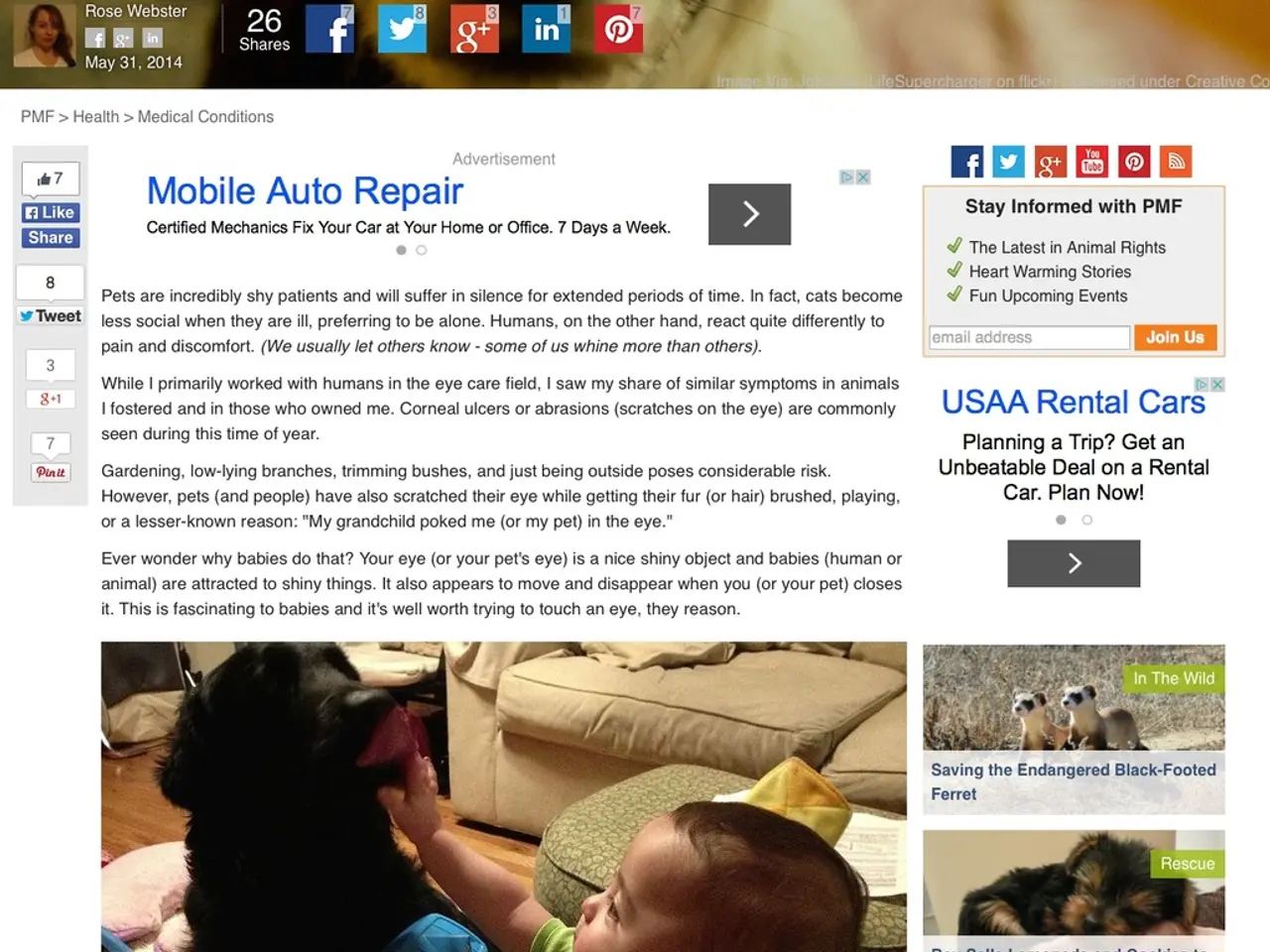Online Safety for First-Graders: Ensuring Your Child's Digital Security
In the digital age, it's crucial for parents to guide their children in navigating the online world safely and responsibly. Here's how you can do it, following the advice from the Federal Trade Commission's (FTC) booklet "Net Cetera: Chatting With Kids About Being Online."
Firstly, it's essential to foster open dialogue about online safety. The FTC's booklet offers valuable guidance on this, encouraging parents to discuss the importance of respect, privacy, and balancing screen time with family activities.
To start these conversations, consider using relatable examples from television shows or movies. This can help children understand the potential risks and pitfalls of online interactions.
Respect is a fundamental aspect of online safety. Children should be taught to treat others with respect in chat rooms, through texts, and in all online interactions. Never share personal information like full names, addresses, ages, or email addresses with strangers online.
Privacy is another critical consideration. Parents should set a time limit for "screen time" and encourage family activities away from technology. Keep the computer in a public area of the house, such as the kitchen or family room, to monitor online activities.
When it comes to meeting online friends in real life, it's essential to emphasize the importance of seeking parental permission first. Children should never arrange to meet an online friend without discussing it with a trusted adult.
The FTC's booklet is available online at consumer.ftc.gov/articles/net-cetera-chatting-kids-about-being-online. The website also offers additional resources, including tips and games that help kids practice online safety skills.
For older children, it's important to check up on their online activities and friends. Spend computer time with young children and show them safe, educational websites. With both age groups, it's crucial to keep the conversation open about online safety and encourage open dialogue about their digital experiences.
In addition to the FTC's resources, consider using parental control software such as Microsoft Family Safety. These tools enable parents to manage screen time, restrict access to apps and websites, and filter inappropriate content while encouraging responsible use of technology.
By utilizing the FTC’s booklet in conjunction with practical parental controls and open family discussions, you can create a comprehensive approach to educating children about online safety, privacy, respect, and healthy family tech habits. Start your journey towards digital safety today.
- In the realm of health-and-wellness, educating children about online safety through open dialogue fostered by the FTC's booklet ensures they practice respect, privacy, and responsible tech habits.
- In the science of parenting, discussing with children the risks and pitfalls of online interactions using relatable examples from entertainment can promote understanding of the cybersecurity aspect.
- In the context of education-and-self-development, employing parental control software like Microsoft Family Safety complements the FTC's booklet, helping to manage screen time, filter content, and promote technology usage.
- As technology plays an increasingly significant role in our lives, it's important for parents to engage in ongoing learning about how to guide children towards safe and responsible online behavior according to the advice from the FTC's booklet, "Net Cetera."




